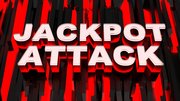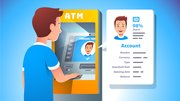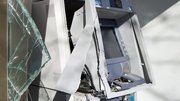News
Consumers increasingly unhappy with how banks handle unauthorized ATM transactions
April 15, 2003
LOS ANGELES -- There appears to be a growing friction between banks and customers claiming losses, as crooks use increasingly innovative tactics to appropriate PINs and other card information at ATMs.
According to a Los Angeles Times report, some financial institutions are taking a tougher stance on issung refunds as fraud claims rise, especially in cases where there is no concrete evidence of theft or fraud.
Consumer complaints about banks' handling of unauthorized ATM transactions nearly tripled from 1999 through 2002, according to the Office of the Comptroller of the Currency (OCC), which regulates national banks.
"In the attempt to minimize losses, some bank staff may have become too hardened and are angering clients," Richard Hartnack, vice chairman of Union Bank of California and chairman of the California Bankers Association, told the Times.
Consumer advocates agree. "The banks are really quite reluctant to give you your money back. "How are you going to prove that you or someone you know didn't max out the account?" said Linda Foley, founder of the Identity Theft Resource Center in San Diego, a victim support group.
Under Federal Reserve regulations, consumers are liable for no more than $50 when they report missing debit cards within two business days. (If they wait longer than two days, the liability rises to $500; after 60 days they must bear the entire loss.) The same rules apply when a PIN or card data are stolen.
In clear cases of fraud, such as a stolen card, customers usually pay nothing. But it can be a different story when no obvious theft is involved. Some cases involve family members, romantic partners or friends with access to cardholders' PINs. Bank investigators often are skeptical in fraud cases in which a customer could have been involved.
Thieves are becoming more sophisticated, manufacturing bogus cards with PINs and card data they obtain at ATMs and point-of-sale terminals using skimming devices, remote cameras and even overlays slipped over the keypad of an ATM that record PINs as they are entered by unsuspecting customers.
This equipment "can pretty much all be bought on the Internet," said Secret Service special agent Jim Kollar, head of the agency's fraud squad in Los Angeles.
Saying that debit card losses are "growing at an alarming rate," the American Bankers Association made its first detailed survey of the problem in 2002, according to the Times report. It reported that frauds involving PIN-based debit cards cost banks nearly $51 million in 2001.
Complaints to the OCC about how banks handle unauthorized ATM transfers have also risen sharply, from 251 in 1999 to 711 in 2002, outpacing the growth in the number of ATM transactions.
"The actual number of problems is certainly far higher," OCC spokesman Bob Garsson told the Times, noting that few bank customers are aware of the agency's Houston-based consumer complaint division.
According to the Times, the OCC advised banks in late 2001 that it was concerned that some were rejecting claims of ATM fraud solely because customers could not provide evidence that their debit cards or PINs had been "misappropriated."
"These facts alone may be insufficient to establish that a transaction was authorized" and that a refund should be denied, the OCC said, because customers may have been defrauded by sophisticated criminals.
Kollar, the Secret Service fraud supervisor in Los Angeles, said that genuine victims who assert their rights will eventually get their money back, "but it's going to take a lot longer than with a credit card."
 ChatGPT
ChatGPT Grok
Grok Perplexity
Perplexity Claude
Claude












